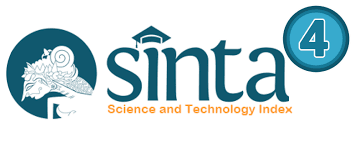Modal Manusia dan Litbang Sebagai Pemacu Pertumbuhan Ekonomi Jangka Panjang Komparasi Asean-5
Abstract
Covid-19 yang melanda dunia berdampak global pada seluruh tatanan sendi kehidupan, utamanya pada sektor ekonomi, terkhusus pada penurunan kegiatan produksi, distribusi, dan konsumsi yang berakhir dengan menurunnya tingkat kemakmuran atau kesejahteraan masyarakat. Pandemi Covid-19 membawa dampak kepada menurunnya pertumbuhan ekonomi hampir diseluruh dunia termasuk negara ASEAN-5. Paper ini hendak melakukan komparasi atas faktor penentu pertumbuhan ekonomi yang dimiliki oleh negara ASEAN-5 dengan mengambil referensi model teori pertumbuhan ekonomi baru (new growth economy) yang dikembangkan oleh Sollow dan Roomer. Paper ini adalah tinjauan deskriptif eksplanatif komparatif yang bertujuan melakukan komparasi dan penjelasan atas faktor penentu pertumbuhan ekonomi di negara Asean-5. Hasil komparasi menunjukkan bahwa dalam pendapatan per kapita, Indonesia tertinggal dari Singapura, Malaysia, dan Thailand. Ketertinggalan Indonesia ini terletak pada masih rendahnya faktor modal manusia serta penelitian dan pengembangan (litbang) dibandingkan dengan negara ASEAN-5.
Kata Kunci: ASEAN-5, New Growth Theory, Modal Manusia, Penelitian dan Pengembangan.
Full Text:
PDFReferences
Acemoglu, D., (1998)., Why Do New Technologies Complement Skills? Directed Technical Change and Wage Inequality, The Quarterly Journal of Economics, November 1998.
Aghion, P and Howit, P., A (1992)., Model of Growth Through Creative Destruction., Econometrica, Vol.60, no.2, pp 323-351.
Anderson, L., W., (2021)., Schooling Interrupted: Educating Children and Youth in the Covid-19 Era., c e p s Journal, Vol.11 , doi: 10.26529/cepsj.1128
Asian Development Bank (2021)., Asian Development Outlook 2021 Update, September 2021
Asian Productivity Organization (2021)., APO Productivity Data Book 2021
Badan Pusat Statistik, (2021)., Berita Resmi Statistik
Blanchard, O., (2017)., Macroeconomics, 5th ed. Pearson
Ferreira, PV., Reis, NR., Pinto, CF., (2017)., Schumpeter’s (1934) Influence on Entrepreneurship (and Management) Research, Global Economic Management Review, Doi: 10.14211/regepe.v6i1.483
HSBC Global Research (2021)., Asian Economics: Looking for Steadier Ground
IMF (2021)., World economic outlook: Recovery During a Pandemic
Nishimura, Y., (2020). New normal and new economy: a new growth engine for China, International Journal of Economic Policy Studies, Springer, Japan Economic Policy Association (JEPA)
OECD (2019): PISA 2018 Insights and Interpretations
Roomer., D (2012)., Advanced Macroeconomics, 4th ed., McGraw Hill
Roomer, P.M., (1994)., The Origin of Endogeneous Growth, Journal of Economics Perspectives, Vol. 8 no. 3 pages 3-22
Saparso, Winoto, H., Wahyoedi, S., (2019), Human Capital Investment and Economic Competitiveness (Indonesian Competitiveness among ASEAN Countries), Business and Economic Research Vol. 9, No. 3
Seliger, B., (2010)., Theories of Economic Miracles.,Econstor working paper
Sidhu, R., (2015)., Knowledge Economies: The Singapore Example, International Higher Education, March 2015, DOI: 10.6017/ihe.2008.52.8024
Tapscott, D., “Strategy in The New Economy”, Strategy and Leadership, November/December 1997.
Unesco (2021)., Unesco Science Report: The race against time for smarter development
US Bureau of Labor Statistics (2021)., Education Pays, 2020
World Bank (2021)., The Human Capital Index 2020: Human Capital in Time of Covid-19
World Development Report (1999)., Knowledge for Development
DOI: https://dx.doi.org/10.36080/js.v20i1.1828
Refbacks
- There are currently no refbacks.
Copyright (c) 2022 Soegeng Wahyoedi, Bambang Siswanto, Hery Winoto Tj, Irma Rasita Gloria Barus

This work is licensed under a Creative Commons Attribution 4.0 International License.
Jurnal Serasi diterbitkan oleh Program Studi Sekretari, Fakultas Ekonomi dan Bisnis, Universitas Budi Luhur.
Lebih detail tentang jurnal Serasi dapat lihat di Sejarah Jurnal Serasi
ISSN (cetak) 2085-0700 ISSN (online) 2622-5913

Ciptaan disebarluaskan di bawah Lisensi Creative Commons Atribusi 4.0 Internasional.
Jurnal Sekretari dan Administrasi (SERASI) telah terindeks oleh: (klik gambar untuk informasi lebih lanjut)








